The members of Led Zeppelin own a series of companies used to collect millions of dollars in royalty payments and to control global trademarks for the band’s name.
LedZepNews reviewed decades of corporate filings and trademark records from around the world to definitively map out the network of companies that makes up Led Zeppelin’s corporate empire.
Our investigation gives fans of Led Zeppelin a rare peek into the estate planning carried out by Robert Plant, Jimmy Page and John Paul Jones as they hand control over band royalties to their children. It also details the shareholdings owned by Helen Grant, Peter Grant’s daughter, as she seeks to sell her 10% stake in Led Zeppelin’s businesses.
Grant’s landmark deal means that Led Zeppelin’s business holdings are in the spotlight more than ever before, especially as the people who own and control these companies will make decisions about what material to release in the coming decades.
Our guide relies on public filings from Companies House in the UK as well as New York State and Florida business records and trademark records from around the world.
Where possible, we detail the shareholders for each company, meaning the people who own stakes in them and benefit financially from them. We’ve calculated the most recent shareholdings using the latest available data but have not published historic shareholder information, so be aware that the percentages may have changed over time.
We also explain relevant directors, meaning the people responsible for running the businesses and making decisions but who don’t necessarily own stakes in them. We’ve also simplified director and shareholder names, for example referring to John Paul Jones in this guide whereas he’s listed in business records under his legal name John Baldwin.
Led Zeppelin companies
Superhype Tapes
Superhype Tapes is the closest thing there is to a single company that represents Led Zeppelin. Set up by Jimmy Page and Peter Grant on October 22, 1968, weeks after Led Zeppelin rehearsed together for the first time, the business remains a key part of the band’s business empire. A Superhype credit is a key marker to spot early pressings of Led Zeppelin’s self-titled debut album.
“The title came from Jimmy being aware of the hype that surrounded us at the time,” Grant told Tight But Loose editor Dave Lewis in an interview published in his book “Celebration II”.
Superhype Tapes controls parts of the band’s music publishing, meaning shareholders in it receive money as a result of album sales and streams. It also owns the key Led Zeppelin trademark: the band’s name in the UK, the EU, the US, Canada, Switzerland, Australia and India. It also owns the trademark for “The Led Zeppelin Experience”, seemingly the name of the band’s scrapped exhibition and hologram project, in the UK, the US and the EU.
Page currently owns 80% of the company with Grant’s estate owning the remaining 20%. Upon Grant’s death in 1995, his stake was split equally between his two children Helen and Warren Grant. Helen Grant is currently seeking to sell her 10% stake in Superhype Tapes.
Between July 2002 and July 2003, Page reached a deal with Grant’s children to buy 30% of the company from them, increasing his stake to 80% and leaving them each with 10% of the business. That transaction came around the time of the May 2003 release of Led Zeppelin’s “DVD” and live album “How The West Was Won”.
Robert Plant and John Paul Jones don’t own any of Superhype Tapes, but they were both directors of the company from 1990 until October 2021 when Jones resigned his director role. Plant remains a director of Superhype Tapes.
Shareholders:
- Jimmy Page – 80%
- Helen Grant – 10%
- Warren Grant – 10%
United Blag Productions (formerly Langwest)
United Blag Productions, originally called Langwest when it was set up on August 16, 1974, is one of Led Zeppelin’s music publishing companies, seemingly used to control the band’s music as well as some of the music for bands signed to Swan Song. The company was renamed United Blag Productions on April 28, 2000.
When it was founded, all four members of Led Zeppelin owned 22.5% stakes in the company. Peter Grant owned the remaining 10%.
Upon John Bonham’s death in 1980, his stake was split up amongst his family. His wife Pat Bonham received an 11.5% stake, while his children Jason and Zoe Bonham each received 5.5%. Helen Grant inherited her father’s stake in the business following his death in 1995 and is now seeking to sell it.
Shareholders:
- Jimmy Page – 22.5%
- Robert Plant – 22.5%
- John Paul Jones – 22.5%
- Pat Bonham – 11.5%
- Helen Grant – 10%
- Jason Bonham – 5.5%
- Zoe Bonham – 5.5%
Swan Song
Led Zeppelin founded its own record label in 1974 as the band sought greater control over its albums and expressed a desire to manage other acts. There isn’t any Swan Song company in the UK, but the band did set up a business with that name in New York on March 12, 1974.
Swan Song still owns a number of trademarks, including its Apollo logo in Australia as well as its name in the US, Canada, Australia and Germany. Its Apollo logo trademark expired in the US in 1999.
The shareholders in Swan Song aren’t made public because New York company filings are less transparent than UK documents, but it’s likely that the band members own stakes in the business and Peter Grant also had a slice of equity.
Last year, someone – likely one of Grant’s children – attempted to sell their stake in Swan Song through the website Royalty Exchange. They wanted $520,000 but accepted an offer of $390,000.
Flames Of Albion Music
Flames Of Albion Music is actually two different companies: Firstly, it refers to a New York business originally set up on September 18, 1961 as Joaneline Music. It was renamed Flames Of Albion Music on February 27, 1976.
Secondly, there is also a UK Led Zeppelin music publishing business set up by the band on April 17, 2007. It was originally known as Cook Seventy Three for several weeks before being renamed Flames Of Albion Music. The list of shareholders below refers to the British business.
Shareholders:
- Jimmy Page – 39%
- Robert Plant – 34%
- John Paul Jones – 16%
- Pat Bonham – 5.5%
- Jason Bonham – 2.75%
- Zoe Bonham – 2.75%
Super Hype Publishing (formerly Do Re Music)
Many albums by Led Zeppelin as well as Jimmy Page and Robert Plant credit Superhype Publishing, a New York business which appears to be a music publishing company owned by the band, essentially a sister business to Superhype Tapes.
New York State business records show a company named Do Re Music was set up on December 3, 1969 before it was renamed Super Hype Publishing (with the space). It remains in business and its CEO is Guy Moot, the CEO of Warner Chappell Music, the publishing arm of Warner Music Group.
Mythgem
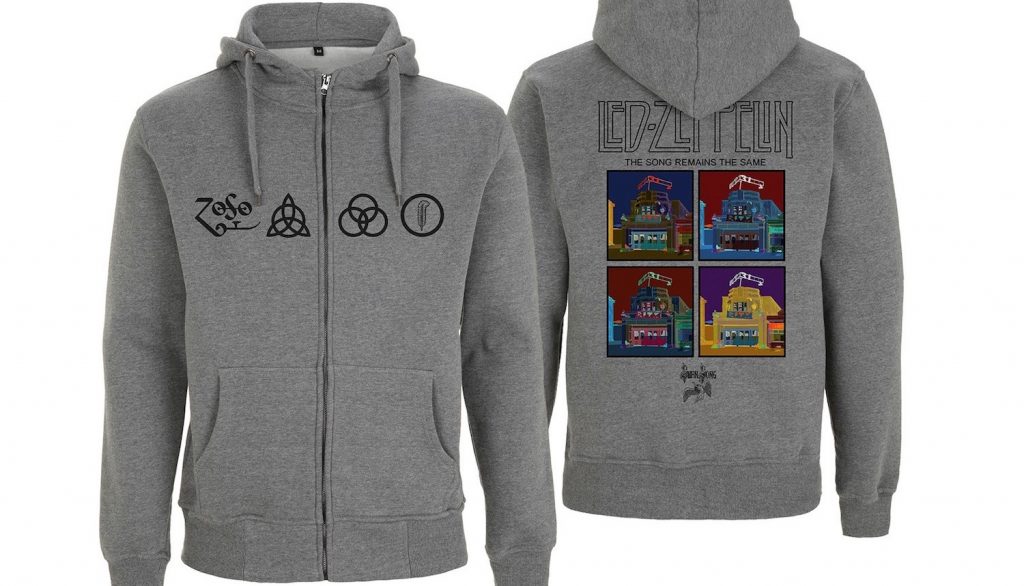
Here’s a name that may be familiar to anyone who has purchased Led Zeppelin merchandise. Mythgem is the band’s merchandise business and its name is often found on labels of Led Zeppelin T-shirts and other items sold by the band.
The surviving members of Led Zeppelin split Mythgem equally between themselves and John Bonham’s family when Mythgem was set up on March 6, 1984.
Shareholders:
- Jimmy Page – 25%
- Robert Plant – 25%
- John Paul Jones – 25%
- Pat Bonham – 12.5%
- Jason Bonham – 6.25%
- Zoe Bonham – 6.25%
Three P Films
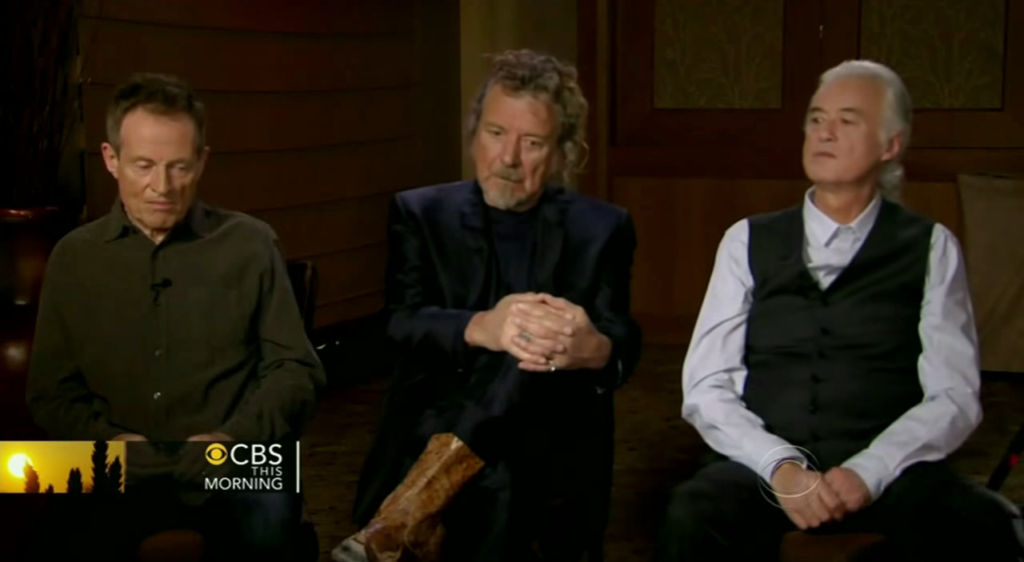
When Led Zeppelin was preparing to release the live album and concert film Celebration Day, the band members set up Three P Films as a vehicle to collect money from its sales. Set up on January 4, 2011, the UK company is credited on video and audio releases of the band’s 2007 reunion show.
Shareholders:
- Jimmy Page – 33.33%
- Robert Plant – 33.33%
- John Paul Jones – 33.33%
Company 2018
The surviving members of Led Zeppelin as well as John Bonham’s widow quietly set up this low-key company in the UK on June 21, 2018 as they debated holding a Led Zeppelin exhibition. The giveaway is the company’s nature of business which is listed as “activities of exhibition and fair organisers”.
So far, no exhibition has come to fruition. Page spoke to Uncut Magazine for its its May 2022 issue. In the interview, he confirmed the LedZepNews report that Led Zeppelin had been working on an official exhibition but revealed that the project ended because the band members disagreed about it.
When asked whether Led Zeppelin has considered holding its own exhibition, Page said that “there was something at one point. But all the members and people around the band couldn’t agree. I was much happier doing my book and the exhibition with the Met.”
Shareholders:
- Jimmy Page – 25%
- Robert Plant – 25%
- John Paul Jones – 25%
- Pat Bonham – 25%
Bonham IP Holdings
This is a Florida business owned by the Bonham family that owns global trademarks for John Bonham’s name as well as his three circles symbol from Led Zeppelin’s fourth album. The company was set up on January 24, 2017 and Jason Bonham is one of its directors.
A March 15, 2025 trademark application made by a lawyer representing the company identified its owners as Pat Bonham, Zoe Bonham and Jason Bonham.
Shareholders:
- Pat Bonham
- Jason Bonham
- Zoe Bonham
P & P Touring
The New York business set up to support Jimmy Page and Robert Plant as they toured the world is, surprisingly, still an active company. P & P Touring was set up on October 26, 1994 and remains in business.
Nightcharm
Nightcharm was set up on May 24, 1994 to help Jimmy Page and Robert Plant as they released new music together. The business is credited in the liner notes of the CD single release of “Shining In The Light”, according to Discogs. The business was shut down on June 22, 2004. It has a similar name to Trolcharm, a business set up by Plant in 1981.
Superhype Company
As well as Superhype Tapes, which remains an active business to this day, Jimmy Page and Peter Grant also set up Superhype Company on the same day: October 22, 1968. It has since been shut down.
Superhype Music
On March 5, 1974 another Superhype company was set up in the UK: Superhype Music. It has since been shut down, likely around 1985.
It’s possible that another company with this name was already set up in 1968 and already shut down by 1974, however. When Jimmy Page registered as a director of Superhype Tapes in 1968, he disclosed the other companies he was a director of: Superhype Music, Superhype Company and Jimmy Page Enterprises.
C & P Sixty Eight
This business was set up on October 1, 2003 and registered at the office of Led Zeppelin’s London accountants. It was shut down on August 31, 2004. It appears to have been named by the accountancy firm Cook & Partners which created many different businesses for its clients.
C + P Eighty Six
This company was set up by the surviving members of Led Zeppelin and John Bonham’s widow on July 7, 2004. It was used to license Led Zeppelin’s name to a Led Zeppelin-themed rollercoaster at the Hard Rock Park theme park that was only open from April to September 2008. The company was closed down on February 8, 2011. It appears to have been named by the accountancy firm Cook & Partners which created many different businesses for its clients.
Shareholders:
- Jimmy Page – 25%
- Robert Plant – 25%
- John Paul Jones – 25%
- Pat Bonham – 12.5%
- Jason Bonham – 6.25%
- Zoe Bonham – 6.25%
S & L Entertainment Enterprises
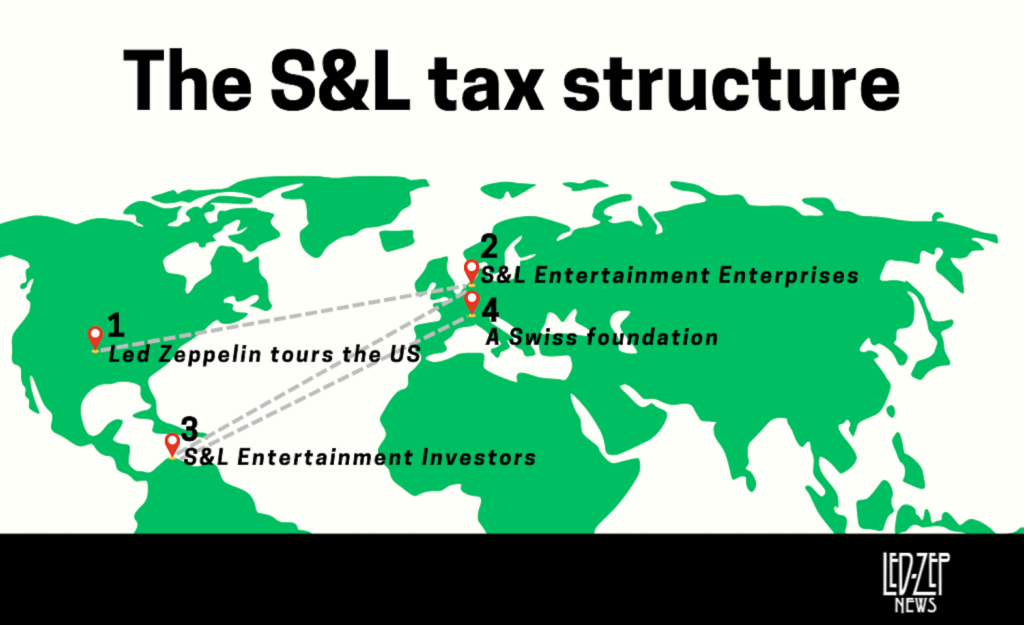
S & L Entertainment Enterprises was a Dutch business Led Zeppelin used to produce its 1977 US tour. The company is also listed on tickets for the band’s cancelled US 1980 tour. You can read our deep dive into S&L here.
S & L Entertainment Enterprises was listed as a defendant when Bill Graham employees Jim Matzorkis, Jim Downey and Bob Barsotti took legal action against the band over the July 24, 1977 Day On The Green incident, in which Matzorkis was allegedly attacked backstage by Led Zeppelin employees.
“I am told that S & L is an independent corporation which employs many artists and performers throughout the world,” Led Zeppelin employees Richard Cole and John Bindon wrote in their affidavits filed in that court case.
The company is mentioned in a 2016 article in the journal The Tax Lawyer. Author J. Ross Macdonald writes: “During 1977, US tours by the rock groups Led Zeppelin and Bad Company were produced by S & L Entertainment Enterprises BV, a Dutch corporation.”
The company also represented Laurence Olivier and the business took the US government to court in 1980.
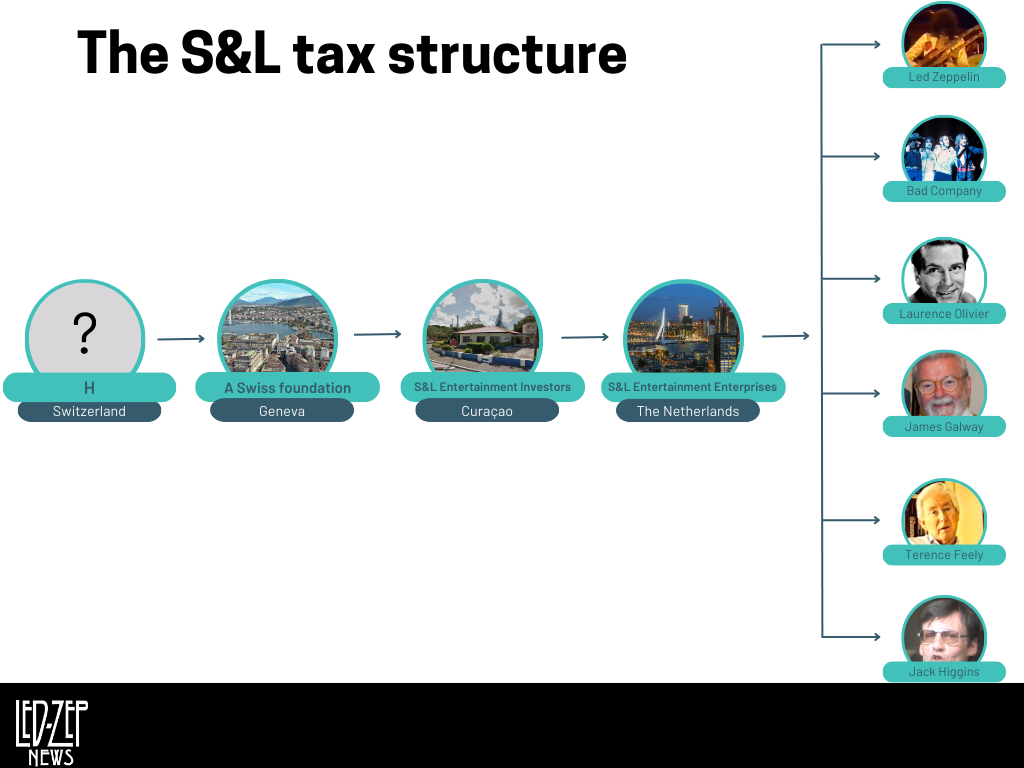
S & L Entertainment Investors
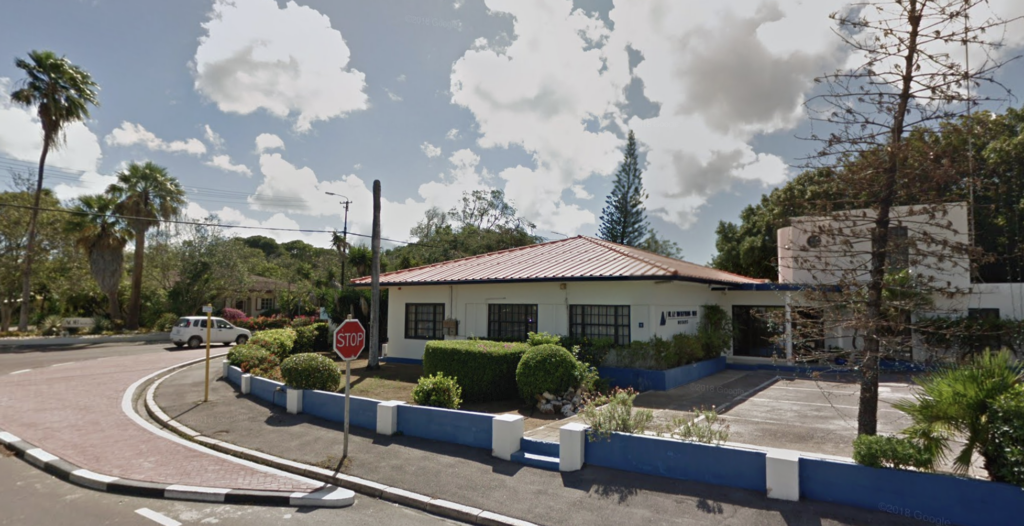
The web of companies producing Led Zeppelin’s US tours from 1977 onwards gets even more complex, as S & L Entertainment Enterprises was owned by another company, S & L Entertainment Investors which was headquartered in the Netherlands Antilles, a collection of several island territories in the Caribbean, according to the 2016 article in The Tax Lawyer.
“The Netherlands Antilles corporation was owned by a Swiss stiftung for the benefit of an unidentified Swiss resident and members of his family,” the article reports.
St George’s Elizabethan Theatre

This was the London theatre charity that Led Zeppelin’s tax advisors Rossminster used as the parent company for Led Zeppelin’s businesses (Jimmy Page Enterprises, Dormouse Music, Things That Go Bump In The Night, More Luck Than Judgement and Peer Grant) from 1978 in an attempt to avoid paying tax on the band’s record sales. The scheme was ultimately found to be effectively redundant and Led Zeppelin faced a major tax bill in the early 1980s.
Joaneline Music
Joaneline Music is a closed music publishing business used by Led Zeppelin for Physical Graffiti and Presence, according to Discogs listings. The Rare Record Collector blog and Discogs state that the company was incorporated in London on August 16, 1961 and shut down on August 28, 1990.
Joaneline also published songs by Cliff Richard and The Shadows, suggesting it was used by Peter Grant in the years before he focused on managing Led Zeppelin.
Interestingly, the New York business Flames Of Albion was originally also called Joaneline Music when it was set up September 18, 1961.
Cullderstead
As part of the process of setting up Led Zeppelin’s record label Swan Song, a UK company named Cullderstead was set up on April 11, 1973. You can find that business listed on some early pressings of Physical Graffiti, with those copies noting that the business was “trading as Swan Song”. Cullderstead entered liquidation on November 3, 1983 and was shut down in 1990.
Cullderstead also operated in the US. An article in the February 23, 1974 issue of Cash Box states: “Peter Grant, manager of Led Zeppelin and co-manager of Maggie Bell, has formed Cullderstead Ltd. to look after his management interests in the United States. He has named Danny Goldberg vice president of Cullderstead.”
New York State business records show it was registered there as a “Foreign Business Corporation”.
A letter from Goldberg to Atlantic Records dated May 15, 1974 was written on Cullderstead stationary. It can be seen on Led Zeppelin’s official website in the memorabilia section.
Langwest
Here’s where things get a bit confusing: Led Zeppelin set up a UK business called Langwest on November 26, 1969, seemingly to focus on film footage of the band. That company was dissolved and shut down, but the company currently called United Blag Productions was previously called Langwest. They’re different businesses with different UK company numbers.
Woodhammer (Nominees)
On February 19, 1975, a company named Woodhammer (Nominees) was registered with the address of Led Zeppelin’s London accountancy firm. The business was a holding company that owned Hammerwood Park, an East Sussex country house that Led Zeppelin purchased at auction in 1973. The band planned to build a recording studio and living quarters inside the house but abandoned the project. The house was boarded up in 1976 and advertised for sale from 1978 before it was eventually sold in 1982.
Jimmy Page, John Paul Jones and Led Zeppelin manager Peter Grant were all directors of the company during the 1980s. From 1987 onwards, only Grant listed this as a directorship. The company has since been dissolved.
Things That Go Bump In The Night (formerly John Bonham Enterprises)
John Bonham set up this UK company on July 30, 1969 to manage his income. Peter Grant was a director, listing it in filings under its original name of John Bonham Enterprises as one of the companies he helped run. It was eventually renamed Things That Go Bump In The Night and sold to St George’s Elizabethan Theatre as part of the Rossminster tax structure before its eventual closure.
J.H. Bonham Developments
John Bonham’s brother Mick Bonham writes in his 2003 book “Bonham By Bonham” that around 1976, following building work to redevelop Old Hyde Farm, John Bonham incorporated a building firm named J.H. Bonham Developments. He also includes in his book a photograph of the company’s office with a sign outside with that company name. We haven’t found any filings relating to this company, however.
Peer Grant
Peter Grant set this company up on December 15, 1969 to collect income from Led Zeppelin royalties. It was also listed as the owner of a motorcycle in registration documents. The company was sold to St George’s Elizabethan Theatre as part of the Rossminster tax structure and has since shut down.
Bad Company Entertainment
Led Zeppelin manager Peter Grant also managed the band Bad Company, setting up this UK business on September 17, 1974. It remains the band’s music publishing vehicle on re-releases of their music. The fate of Grant’s shareholding in this business is unclear, but it’s likely that it was split equally between his children Helen and Warren. Bad Company bass player Boz Burrell’s wife Catherine inherited his 20% share of the business following his death in 2006.
Shareholders:
- Peter Grant’s estate – 20%
- Paul Rodgers (via the UK business Ramshackle Music) – 20%
- Catherine Burrell – 20%
- Simon Kirke – 20%
- Mick Ralphs – 20%
Jimmy Page companies
Succubus Music (formerly Cap Ten)
Each surviving member of Led Zeppelin has set up companies in the UK to receive their music royalties. Jimmy Page’s is called, of course, Succubus Music. He’s split the company up so that each of his children owns 9% of the business, but none of them are directors in the company.
The company was set up on August 19, 1997 as Cap Ten (more on these “cap” companies later) but was renamed on September 27, 1999.
Shareholders:
- Jimmy Page – 55%
- Ashen Page – 9%
- Scarlet Page – 9%
- James Page – 9%
- Zofia Page – 9%
- Jana Page – 9%
Classicberry
Another business controlled by Jimmy Page is Classicberry, set up February 12, 1982. The company is a music publishing business but also owns several global Page trademarks including his name, autograph and “Zoso” symbol. Page’s daughter Scarlet is a director of the business but doesn’t own any shares in it.
Classicberry is credited in the liner notes for Live At The Greek, the album Page recorded with The Black Crowes. The company owned all of the shares of Ramblelynn, another business.
Shareholders:
- Jimmy Page – 100%
JP Music Publishing
Jimmy Page set up this new music publishing business on January 4, 2024. It’s not yet clear what its purpose is.
Shareholders:
- Jimmy Page – 100%
68 Publishing
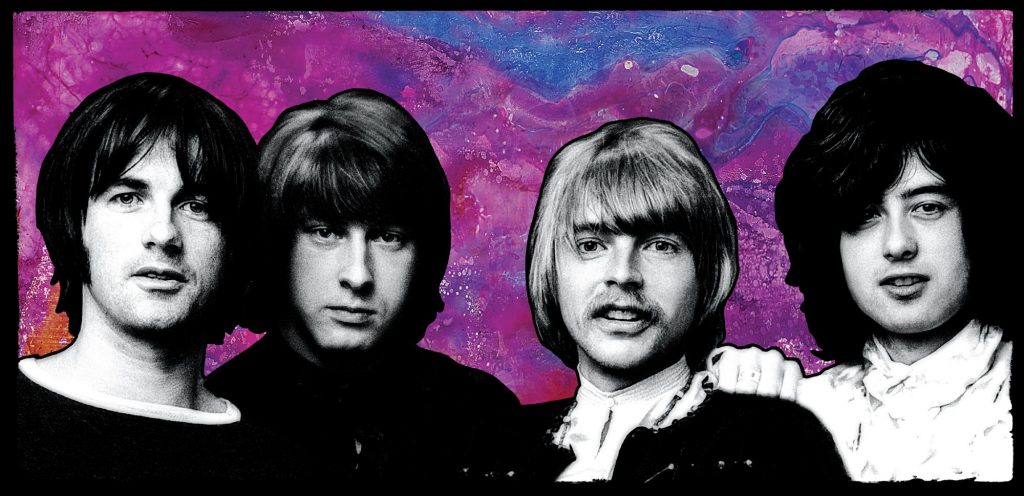
When Jimmy Page wanted to release the Yardbirds double album Yardbirds ’68, he set up this business on August 8, 2017 to handle the release and collect royalties.
Shareholders:
- Jimmy Page – 100%
Nineteen Sixty Eight
Also on August 8, 2017, Page set up this company to handle the release of Yardbirds ’68.
Shareholders:
- Jimmy Page – 100%
Equinox (Book Sellers And Publishers) [formerly Saracastle]
Led Zeppelin fans may be aware that Jimmy Page owned a bookshop in London which published occult works in the seventies. He set this UK business up on December 14, 1973 and has kept it running ever since, even though the bookshop closed in 1979 and it is officially classed as a dormant company.
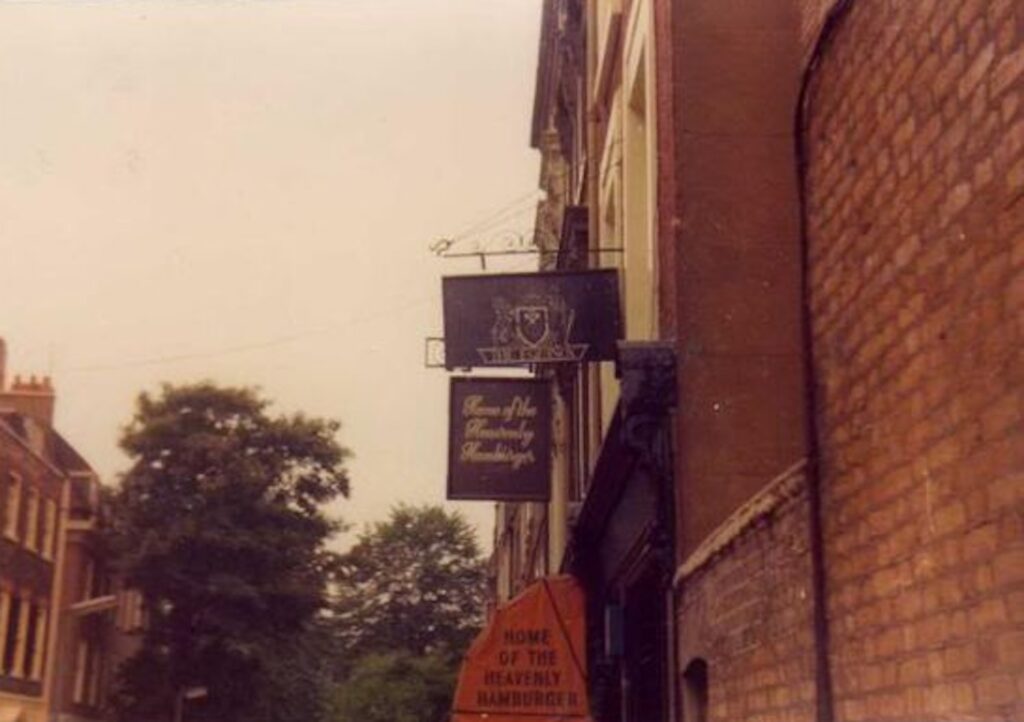
The company’s incorporation documents available on Companies House show that it was originally called Saracastle. It’s unclear when it was renamed. Its annual accounts show that since at least 1994, its financial status is that it has an outstanding loan of £54,232, presumably owed to Page who has no intention of collecting it.

Peter Grant’s estate still owns half of the business, meaning Helen and Warren Grant presumably own 25% each. The business was previously wholly owned by Jimmy Page Enterprises.
Shareholders:
- Jimmy Page – 50%
- Estate of Peter Grant – 50%
Jimmy Page.com
Jimmy Page’s website has a merchandise store, so he also has a company to manage it. Set up on May 11, 2011, the company carries out “retail sale via mail order houses or via Internet”, according to its nature of business classification on Companies House.
Shareholders:
- Jimmy Page (via Classicberry) – 100%
Jimmy Page Enterprises
On June 22, 1966, Jimmy Page set up this business in the UK. The business set up the day after Page performed for the first time with The Yardbirds at the Marquee Club in London on June 21, 1966. It was shut down in the 1980s.
Page bought Boleskine House in Scotland using this business in 1971 before transferring ownership to himself personally on April 30, 1979, Scottish land ownership records show. The company also owned Equinox (Book Sellers And Publishers).
A filing made to the US Copyright Office on September 23, 2014 transferred the copyright for the songs “In The Evening,” “South Bound Suarez,” “Fool In The Rain,” “Hot Dog,” “Carouselambra” and “I’m Gonna Crawl” from Jimmy Page Enterprises to Classicberry, explaining that Classicberry is “successor in-interest-to Jimmy Page Enterprises”.
The business was sold to St George’s Elizabethan Theatre as part of the Rossminster tax structure.
James Page (Music)
Jimmy Page set up this UK music publishing business in 1965 or earlier when he worked as a talent scout for Immediate Records and the company is credited on a number of albums and singles that Page worked on.
Six of the songs on John Williams’ 1968 album Maureeny Wishfull were credited to this business. UK copyright records also show this business as publishing the 1965 song “The Winds That Blow” by Williams.
In 2021, a single-sided 7″ acetate recording of the 1966 song “Tears Won’t Help” by The Majority came up for auction. It was credited to “James Page (Music) LTD” on the label. Final copies of the song, the B-side to the single “To Make Me A Man”, credit it to James Page Music.
The July 2, 1966 issue of Cash Box lists James Page Music as a division of Mirage Music. James Page Music is listed as one of the directors of the music publishing business Immediate (London) Music Ltd in the annual directory and award issue of Record World published on July 27, 1968.
The business was struck off the companies register in 1972, according to a February 29, 1972 copy of The London Gazette.
Outrider
In the 1980s, Jimmy Page set up a business in the US called Outrider to support the touring for his debut solo album of the same name. You can find “Outrider Inc” listed on merchandise including T-shirts and badges sold during the Outrider tour.
Outrider was one of the defendants in a 1989 lawsuit launched by Rick Thompson Productions seeking $4.95 million. The case was dismissed in 1991.
Boat Music Publishing
Another sixties company set up by Jimmy Page was Boat Music Publishing, which was incorporated on February 15, 1968. It was shut down after 1989.
Ramblelynn
Was Jimmy Page involved in chartering a yacht in the 1980s? In filings from this time until 1990, he lists himself as a director of Ramblelynn, a company set up on January 4, 1982 for the “leasing of equipment and the chartering of the yacht”. Was there a yacht named Ramblelynn? And was that a play on “Ramble On”? The company appears to have shut down around 2003. While it was active, the company was entirely owned by Classicberry.
Classicberry Touring
Jimmy Page set up this US company, seemingly to support touring in the US, on April 6, 1993. It was shut down on September 24, 1997.
Cap Ten
Here’s another confusing one: Jimmy Page set up a company named Cap Ten on November 24, 1987. It has been dissolved, but then he set up another company under that name on August 19, 1997 which became Succubus Music.
Robert Plant companies
Sons Of Einion (formerly Computer Chance)
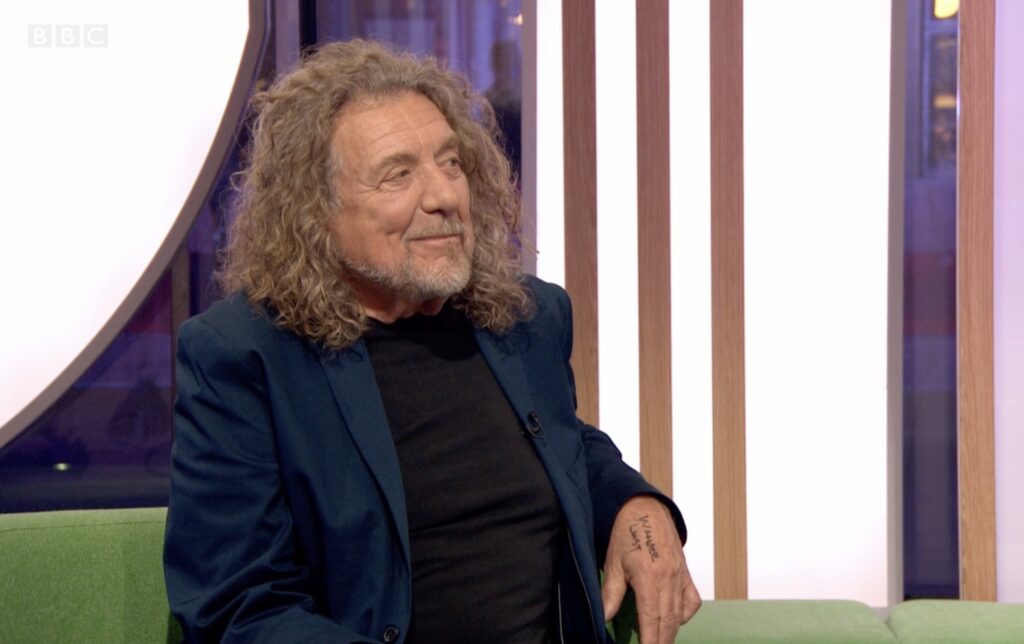
Robert Plant’s music publishing company, set up on March 21, 1997, is called Sons Of Einion. It was originally called Computer Chance until it was renamed on November 14, 2001.
Plant’s three surviving children are directors of the business along with Plant. They also own stakes in the company.
Shareholders:
- Robert Plant – 57.14%
- Carmen Jones – 14.29%
- Logan Plant – 14.29%
- Jesse Lee Plant – 14.29%
Trolcharm
Robert Plant also owns Trolcharm, a music publishing business he set up on June 30, 1981 to collect royalties from his solo career. Like Sons Of Einion, Plant’s three surviving children are all directors, but none of them own any equity in this business.
Trolcharm also owns the trademarks for Saving Grace, his new solo band, in the US, UK and the EU. The company has a similar name to Nightcharm, a business set up in 1994 to support Plant’s recording with Jimmy Page. Trolcharm previously owned all of the shares of Scoonfield, another business set up by Plant.
Shareholders:
- Robert Plant – 100%
Bloodmoney
Here’s a mystery: What is Bloodmoney? Robert Plant set up this UK business on May 16, 2023. Its purpose and assets are unclear, other than its nature of business being “support activities to performing arts”.
Shareholders:
- Robert Plant – 100%
Es Paranza Recordings
On February 21, 2025 Robert Plant set up the new UK music publishing company called Es Paranza Recordings. It’s named after the record label Plant used to release his 1983 solo album The Principle of Moments and the 1984 album The Honeydrippers: Volume One.
Plant owns the entirety of the business as the company is owned by Trolcharm. Plant’s children Carmen Jones, Jordan Plant and Logan Plant are directors of the company alongside Robert Plant.
Shareholders:
- Robert Plant – 100% (via Trolcharm)
Peace & Love On The Road
When Robert Plant tours outside of the US and UK, Peace & Love On The Road is the company involved in the tour. It’s structured as a limited liability partnership, meaning the precise shareholdings are unclear.
Shareholders:
- Robert Plant – between 25% and 50%
Peace & Lovun (formerly Areamist, Touring By Moonlight, Sons Of Glyndwr)
When Robert Plant toured in the eighties in his solo career, he needed a business to handle the money and to produce merchandise. Peace & Lovun was that company. It started life as Areamist on April 18, 1983 before being renamed Touring By Moonlight on August 4, 1983. Plant changed his mind on the name again on April 27, 2001, renaming it Sons Of Glyndwr.
You can find the company name Touring By Moonlight on Plant merchandise such as T-shirts and bandanas dating back to his 1988 Non Stop Go tour.
More Luck Than Judgement (formerly Robert Plant Enterprises)
Just as John Bonham had John Bonham Enterprises and Jimmy Page had Jimmy Page Enterprises, Robert Plant was a director of the business Robert Plant Enterprises which appears to have been set up for him to receive royalties.
The company was founded on July 31, 1969 before being renamed More Luck Than Judgement. Peter Grant and Plant’s wife Maureen were directors of the company alongside Plant. The company was sold to St George’s Elizabethan Theatre as part of the Rossminster tax structure and has since been shut down.
Touring By Moonlight USA
Robert Plant’s solo career also involved touring the US, so he set up Touring By Moonlight USA in New York on December 5, 1983. It was shut down on December 27, 2000.
Trolcharm Touring
Trolcharm also had an American equivalent called Trolcharm Touring. It was set up on July 7, 1993 and shut down on December 27, 2000, the same day that Touring By Moonlight USA was shut down.
Talk Time Music
Talk Time Music was a New York business set up by Plant on June 1, 1983 to publish music from his solo career.
It was seemingly only used for his second solo album, 1983’s The Principle of Moments, and the singles “Big Log” and “In The Mood” from it along with the 1985 album Shaken ‘n’ Stirred.
No songs were registered by the company after 1985. The company was shut down on December 20, 2000.
Talktime
Talktime (this time just the one word with no space) was a UK business Plant set up on November 4, 1987 which seems to have been used to collect royalties from his No Quarter album with Jimmy Page as well as his solo career in the 1990s. The business was shut down around the year 2000.
Scoonfield
On January 5, 1982, Robert Plant set up a UK company named Scoonfield. It was shut down on December 6, 1994. It was wholly owned by Trolcharm.
Palamino Records
On February 21, 1975 Robert Plant set up a UK business named Palamino Records. The company existed until at least the 1980s but has since shut down.
John Paul Jones companies
Cap Three
Cap Three, set up on August 19, 1997, is John Paul Jones’ music publishing business. If that’s sounding vaguely familiar, it’s likely because Jimmy Page set up Cap Ten (later renamed Succubus Music) on the same day.
Jones’ three daughters are all directors and shareholders of the company. His wife Maureen is a director but doesn’t own any equity in the company.
You’ll find this company mentioned in the liner notes for Them Crooked Vultures’ sole album.
Shareholders:
- John Paul Jones – 57.14%
- Jacinda Crossland – 14.29%
- Kiera Petersen – 14.29%
- Tamara Swinglehurst – 14.29%
J.P.J. Communications (formerly Glimpseport)
John Paul Jones also owns another business, this one set up on July 14, 1981. Initially known as Glimpseport, it was renamed on January 28, 1983. Like, Cap Three, Jones’ daughters are all directors along with his wife Maureen. However, John Paul Jones owns all the shares in this business.
Shareholders:
- John Paul Jones – 100%
Snoweye Music
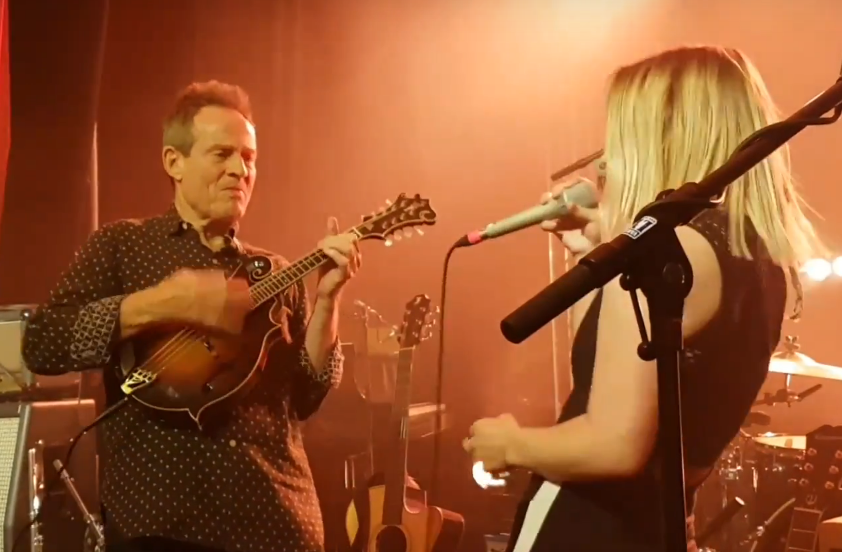
Snoweye is John Paul Jones’ newest musical project, a trio he has only performed with a handful of times since their formation in 2017. LedZepNews reported last year that they have recorded a film soundtrack together, though.
Perhaps anticipating future projects and performances with Snoweye, Jones set up a business for the band in the UK on November 25, 2019 to handle publishing their music. Each band member owns a third of the company.
Shareholders:
- John Paul Jones – 33.33%
- Elle Márjá Eira – 33.33%
- Lucy Parnell – 33.33%
Dormouse Music
On July 29, 1969 John Paul Jones set up this company to receive his royalties from Led Zeppelin’s music. The company was sold to St George’s Elizabethan Theatre as part of the Rossminster tax structure and has since been shut down.
Hambone Music
On October 22, 1968, John Paul Jones incorporated Hambone Music in the UK. It appears to have been a music publishing business he used for his personal musical efforts. Hambone Music was credited as a publisher for future Swan Song artist Madeline Bell’s 1973 album Comin’ Atcha, which Jones produced and arranged. Interestingly, the company was incorporated on the same day as Superhype Tapes.
Bizarrely, the company was credited for a set of lyrics in a 1977 issue of Penthouse magazine.
Hambone Music was dissolved in 1984.
J. P. J. Music
John Paul Jones recorded the soundtrack to the film “Scream For Help” which was released in 1984. To collect royalties from the film’s soundtrack album, he set up J. P. J. Music on October 5, 1983. The company has since been shut down.
Stintontree
On March 1, 1982 John Paul Jones set up a UK company named Stintontree. It has since been shut down.
Hegarty Constructions
In a 1982 company filing, Jones listed Hegarty Constructions as another company he was a director of. We’ve been unable to find any company with this name. It’s possible this was a misspelling of Hegarty Construction, a business that did exist at that time but was shut down in 1984.
It seems likely this company was related to Jones’ wife Maureen Baldwin as her maiden name was Hegarty.
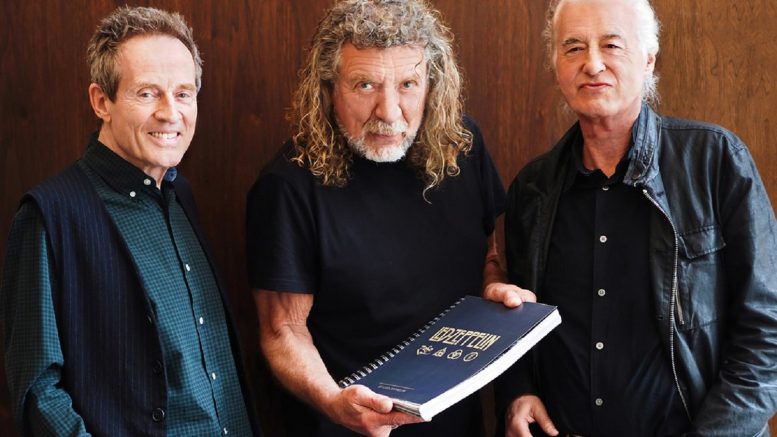
Great read with much research needed for this. Well done to PG for protecting band and family members interest. Logically any 1 large company wanting to come in and own (buy) all (or most) of this would require the remaining band members and families to come together which would be a near impossible task. So ownership may remain fragmented?
It’s all held in Limited Liability and in Trust. Ain’t no big outsider getting their hands on these estates. These are the legacies of the band members and when they die, there will be corporate fiduciary to manage the assets and pay the kidsand beneficiaries in perpetuity to avoid family feuds.
Thank you very much. This is very helpful.
William R. Staats MBA
Great investigative work!
-3hrs
So who owns “flames of Albion*music
Very insightful,thanks for this.
So – how much does Helen Grant want for her 10%? I could be in on that.
The greatest Rock & Roll band of all time! Hands down and none other than this group They just nailed it(playing instrument /vocals)from start to finish. Nothing they touched turned to silver..pure gold.
If you don’t believe me,just crank- up ” Achilles Last Stand” on a really nice stereo system,you will hear the Gold of Page and Bonham!!!! It is surreal,no other riff like it. None.
Admiring the way these artists have rightfully protected and provided for themselves and their families.
If Peter Grant did this for the boys, he’s likely established these kinds of estates for many others. I’m sure LZ members have tried other British bands on to PG….kind of a reward for all he did for them.
Cap 10 and Cap Three references
Page and Jones are both Capricorns often referred to as Cap.
JPJ (Cap Three) was born on the Jan 3, based on that… JP (Cap 10) should be born on Jan 10 but it appears online as Jan 9. 🙁 So not the best theory. Capricorn is the 10th sign of the zodiac however. Since JP was so heavily into myscticism maybe he changed his public info about his birth info from the 10th to the 9th and he was really born on the 10th! :O Lol. Idk.